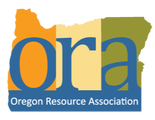With research and insight gathered from ORA Members, this content is tailored to meet the current, relevant needs of ORA Members.
Learning Objectives:
• Learn the latest status of medical directives that apply to the people supported and those who serve them
• Learn what the latest research and reports show about the mental health of direct care staff
• Learn about the most reasonable predictions that can be offered regarding psychological stress and medical care
• Gain opportunity to ask questions of a medical professional to provide better supports and to share best innovative practices among the industry
Dr. Clay is a Licensed Clinical Psychologist with Degrees from the University of Oregon and Pacific University. As part of his Residency, he was a Fellow at the Center on Human Development and Disability at the University of Washington Medical Center as well as Oregon Rehabilitation Association and Oregon State Hospital. Dr. Clay has worked as a direct care staff, case manager, protective services investigator, Clinical Psychologist and Clinical Neuropsychologist.
During Graduate School, he focused on Clinical and Research undertakings with the Dual Diagnosed (those with Intellectual Disabilities and Comorbid Mental Illness), as well as adult Neuropsychology. He published 3 times in peer reviewed journals during his graduate studies and won a competitive scholarship focusing on work with the Dual Diagnosed.
Dr. Clay was on the board of Galt Foundation for more than 10 years, an organization dedicated to providing vocational services to people with disabilities in Oregon, Oklahoma.
Over the previous 10 years, Dr. Clay has provided therapy and assessment to people with Depression, Autism, Anxiety Disorders, Intellectual Disabilities, Life Transition Issues and many others. Dr. Clay’s therapeutic approach is based in CBT, but includes humanism and humor. Dynamic humor can lead to authentic rapport which may allow for more formal interventions to be applied.
He has spoken at more than 20 conferences, Keynoted at the Oregon Co-Occurring conference 5 years in a row and recently organized the annual conference for 2013. In addition, he has provided more than 75 speaking engagements to partners throughout the region.
For more information on this training on how you can participate, contact Kim Mintrone (kmintrone@oregonresource.org) at 503-585-3337.
Learning Objectives:
• Learn the latest status of medical directives that apply to the people supported and those who serve them
• Learn what the latest research and reports show about the mental health of direct care staff
• Learn about the most reasonable predictions that can be offered regarding psychological stress and medical care
• Gain opportunity to ask questions of a medical professional to provide better supports and to share best innovative practices among the industry
Dr. Clay is a Licensed Clinical Psychologist with Degrees from the University of Oregon and Pacific University. As part of his Residency, he was a Fellow at the Center on Human Development and Disability at the University of Washington Medical Center as well as Oregon Rehabilitation Association and Oregon State Hospital. Dr. Clay has worked as a direct care staff, case manager, protective services investigator, Clinical Psychologist and Clinical Neuropsychologist.
During Graduate School, he focused on Clinical and Research undertakings with the Dual Diagnosed (those with Intellectual Disabilities and Comorbid Mental Illness), as well as adult Neuropsychology. He published 3 times in peer reviewed journals during his graduate studies and won a competitive scholarship focusing on work with the Dual Diagnosed.
Dr. Clay was on the board of Galt Foundation for more than 10 years, an organization dedicated to providing vocational services to people with disabilities in Oregon, Oklahoma.
Over the previous 10 years, Dr. Clay has provided therapy and assessment to people with Depression, Autism, Anxiety Disorders, Intellectual Disabilities, Life Transition Issues and many others. Dr. Clay’s therapeutic approach is based in CBT, but includes humanism and humor. Dynamic humor can lead to authentic rapport which may allow for more formal interventions to be applied.
He has spoken at more than 20 conferences, Keynoted at the Oregon Co-Occurring conference 5 years in a row and recently organized the annual conference for 2013. In addition, he has provided more than 75 speaking engagements to partners throughout the region.
For more information on this training on how you can participate, contact Kim Mintrone (kmintrone@oregonresource.org) at 503-585-3337.
